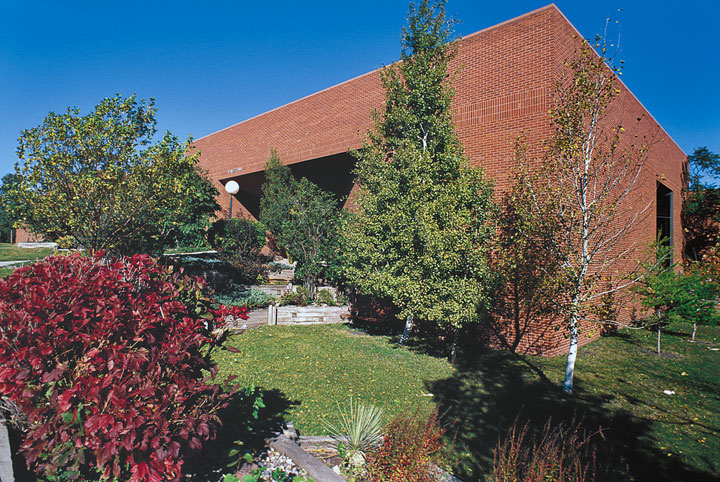Biotechnology is an interdisciplinary field that combines biology and technology to design and produce new molecules, plants, animals, and microorganisms with improved characteristics. Biotechnology offers seemingly unlimited opportunities to combine genes from related or unrelated species to produce useful organisms with desirable properties not previously found in nature.
Biotechnology may be considered a collection of technologies using animal and/or plant cells, biological molecules, molecular biology processes, and genetic engineering for applications in medicine, agriculture, and the pharmaceutical industry. The technologies include the use of recombinant DNA for gene cloning and gene transfers between organisms; culture of plant and animal cells and tissues; fusion of animal cells or plant protoplast; the regeneration of whole plants from single cells and the large-scale fermentation processes that use some of these novel organisms for the production of pharmaceuticals, diagnostic tests for diseases, feed additives, enzymes, and hormones.
Examples of successful biotechnology include the development of crop plants resistant to herbicides or insects, the production of human growth hormone and insulin by genetically engineered bacteria, and the development of unique vaccines.
CAREER OPPORTUNITIES
Biotechnology continues to develop rapidly into new research areas. Surveys indicate there will be a continuing high demand for well-educated personnel. Job opportunities are found in college and university life science departments, private and government research institutes, food production, pharmaceutical and agrochemical industries, and biotechnology industries. Graduates of this program have the educational background and laboratory experience to take advantage of any of these job opportunities. Graduates of the biotechnology program are now successful and productive scientists at pharmaceutical, agrochemical, and biotechnology companies, as well as government and private research institutions here in Fargo and throughout the country.
Scholarship Opportunities
- Biotechnology Scholarship, ~$200
HIGH SCHOOL PREPARATION
Students entering the biotechnology program should have a strong background in mathematics, including trigonometry, biology, chemistry, physics, writing and computer courses. A composite ACT score of 26 or higher is recommended.
TRANSFER STUDENT PREPARATION
Transfer students are strongly advised to take transferable general education and intro biology and chemistry courses in preparation for upper-level science courses at NDSU.
The Curriculum
The recommended course of study includes courses to develop special skills needed to enter the rapidly expanding and changing biotechnology field. In addition to the required courses, students may select from various specialized elective science courses to help develop a particular area of interest. Students majoring in biotechnology are required to either complete an internship or perform a research project in the laboratory of a faculty advisor. The biotechnology program leads to a Bachelor of Science degree.
Program Outcomes
-
Demonstrate a familiarity with professional and ethical behavior in biotechnology.
-
Identify and explain biotechnology discipline-specific knowledge and concepts.
-
Describe the process of scholarly inquiry in biotechnology
-
Perform classical and modern biotech techniques with consistency.
-
Communicate scientific results and scientific understanding to a chosen audience.
-
Participates effectively as a team member in collaborative work.
-
Exhibit professional skills and personal effectiveness to enter the job market.
-
Describe their role and begin participating in being civically responsible, contributing citizens, and creating inclusive environments.
Student organizations
We have an active Biotechnology and Microbiology Club that tours local businesses related to biotechnology and microbiology, hosts guest speakers currently working in the fields of microbiology and biotechnology, and meets for social events throughout the year.
The Faculty and Facilities
The faculty who advise, teach, and serve as research mentors for the biotechnology program are spread among several academic departments. The departments include plant sciences, biological sciences, biology, chemistry, biochemistry, and molecular biology; animal and range sciences; plant pathology; veterinary and microbiological sciences; and pharmaceutical sciences. Several North Dakota State University Center for Nanoscale Science and Engineering scientists and the on-campus USDA facilities also serve as research mentors.
Laboratory facilities and specialized equipment are used for instruction and research. These include animal and plant tissue culture facilities, small animal housing, electron and confocal microscopes, automated DNA sequencing equipment, equipment for performing microarray experiments, and NDSU Core Labs. The Core Labs are shared cutting-edge research facilities and include the Advanced Imaging and Microscopy Core, Core Biology Facility, Core Synthesis and Analytical Services, Biotech Innovation Core, and the Electron Microscopy Core Laboratory, among many other state-of-the-art facilities and equipment.
Most (approximately 60 percent) of biotechnology program graduates choose to continue their education in graduate or professional schools. Biotechnology program graduates have earned master's and doctoral degrees in many diverse areas, including cellular and molecular biology, biology, microbiology, plant sciences, animal physiology, cancer biology, and virology, at many of the most respected universities in the United States. We also offer an accelerated bachelor of science pathway into a Master of Microbiology, completed both in 4-5 years.
POSTGRADUATE OPPORTUNITIES
Graduate School. The biotechnology major emphasizes experiential learning in coursework and research laboratories that provide the foundation to be successful in graduate school. We even offer an accelerated master's in microbiology program to help students optimize their timeline to complete their graduate degree while finishing their bachelor's degree.
Sample Program Guide
IMPORTANT DISCLAIMER: This guide is not an official curriculum. This guide is a sample four-year degree plan of how students might plan this major with other degree requirements to complete their education in four years.Student plans will vary from this sample due to a variety of factors, such as, but not limited to, start year, education goals, transfer credit, and course availability. To ensure proper degree completion, enrolled students should utilize Degree Map and Schedule Planner in Campus Connection and consult regularly with academic advisors to ensure graduation requirements are being met.

